Are you stuck in the crossfire of a clash between AI writing software and Google's scary warnings about punishing websites with AI-generated content?
Artificial intelligence is infiltrating almost every corner of the web, assisting users in generating faster and better content while enhancing their writing talents.
While AI tools are a necessity nowadays, their growth raises questions about whether or not writers should employ them.
Furthermore, some street talk also gets the ball rolling on topics circulating the internet, such as "Will Google penalize AI content?"
There are numerous different opinions on why Google would do such a thing and what is the big picture in this case.
To answer these questions and stop the cycle of concerns, we'll discuss today if Google really penalizes AI content and what you can do to stay safe.
Let's get into it!
What is Artificial Intelligence?
Did you know that the artificial intelligence sector is rapidly expanding, with the AI market expected to reach $1.2 trillion by 2023?
The term "artificial intelligence" was coined by John McCarthy in 1956 when he introduced the term to describe the field of computer science.
It is a technology that creates computer programs that can imitate human thought and behavior — machines with the ability to think, learn, reason, and act like humans.
It is a subset of machine learning and computer science that focuses on the simulation of intelligent behavior in computers.
AI is an umbrella term for several technologies that create "smart" machines, including:
- Deep learning
- Natural language processing (NLP)
- Robotics
- Machine vision
- Machine learning
What is AI-generated content?
Artificial intelligence (AI)-generated content is a text output generated using AI technology.
AI software and algorithms produce this kind of content to simulate human-like behavior and provide a more realistic experience for users.
Let’s see why AI tools are so popular today and which drawbacks create such a fuss over the web.
The Good and the Nasty Truth About AI Tools
Each character in a superhero story has a good and a wicked side, and AI tools are no different.
The issue, however, is not with the technology itself but with the question: "What are you utilizing these tools for?"
1. AI Tools Benefits
AI tools' primary role and responsibility are to take over a portion of your tasks, not to complete them all for you.
They help you overcome writer's block moments and get through the writing process smoothly, with less effort than writing everything manually.
AI tools can help you:
- Correct your grammar and spelling issues
- Fix your bad writing
- Rewrite your sentences
- Assist you in writing SEO-friendly product descriptions
- Help you write your blog posts 7x faster, etc.
Their abilities are one of the reasons why many individuals are generally afraid of AI tools, which raises different concerns — will AI replace copywriters?
If they are so amazing, why the fuss?
Whether you're just starting as a content writer or you're already a veteran, it's perfectly fine to use tools that can handle the repetitive, tiresome, and exhausting aspects of your job.
However, not everyone uses AI tools for their intended purpose, but rather to find multiple ways to deceive the Google algorithms for higher rankings on the fly, which leads us to the nasty side.
Let’s take a peek!
2. AI Tools Shortcomings
With countless hours of crafting the article, it is upsetting to see when someone publishes a low-quality article with an apparent robotic tone and gets away with it, right?
However, the mishandling of AI tools is not the lone disadvantage of adopting them.
The following are the most prevalent drawbacks of AI tools:
- Facts need to be triple-checked — AI tools can’t research facts for you.
- Output can be nonsensical — Sometimes, output can completely miss the topic or keyword.
- Can be repetitive — It tends to repeat the same paragraphs or definitions.
- No conclusions — Very poor or no wrap-up on the subject.
- Limited control when extending the output — You have zero control over the generating flow.
Now imagine what happens when people recklessly use AI tools.
Considering all this, it is no surprise that Google tends to protect consumers from misleading information by prohibiting abuse of AI capabilities (publishing content without sufficient study).
That leads us to the following subject:
History Of Conflicts Between Google and Black Hat SEO
As the largest search engine on the web and with an estimated $1549 billion net value, Google is the de-facto standard for search.
The company is the primary digital marketing tool in the business world.
However, with the rise of artificial intelligence technology as one of the hottest topics in the tech industry, disruptions in the field are not as uncommon.
As a result, today, we have 'black hat' SEO — or at least, it is what Google considers as 'black actions' that are not entirely within Google guidelines.
That includes:
- Article spinning — Using programs or paying authors to rewrite existing content.
- Keyword stuffing — Excessively inserting keywords in the article.
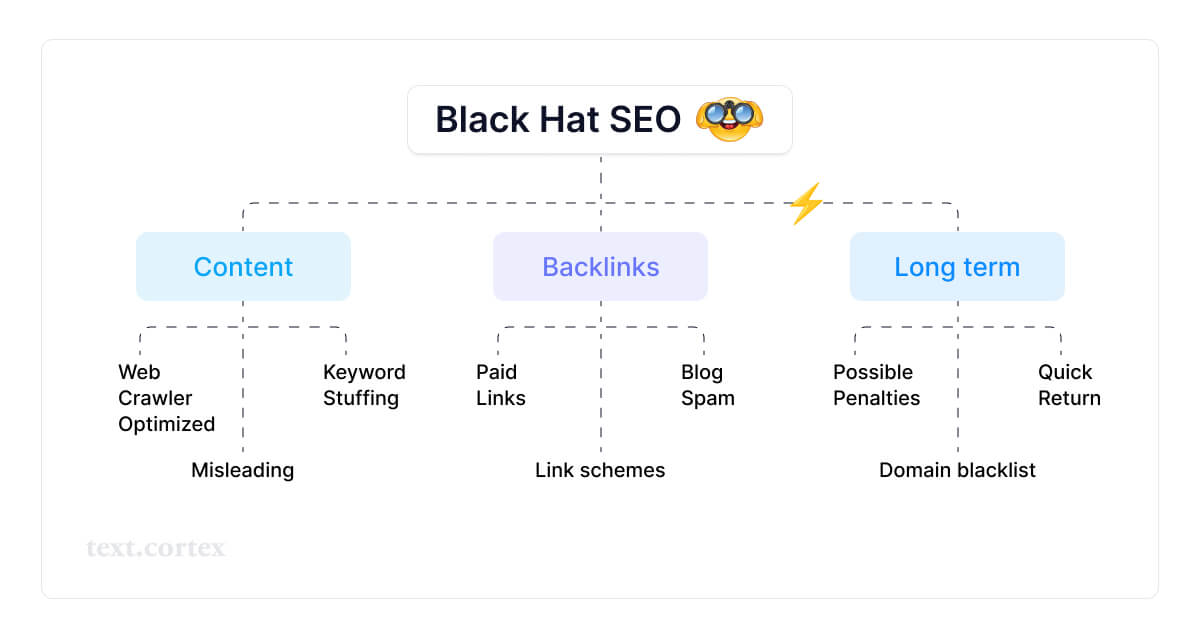
But how does Google uncover this kind of content?
How Do Google Algorithms Work?
Google handles nearly 8.5 billion daily searches, which indicates that its services need to be highly on point, helping people sort through the massive amount of data available on the internet.
As a result, multiple complex algorithms work behind the scenes of these ranking systems to organize the search engines' capabilities and provide the most relevant results.
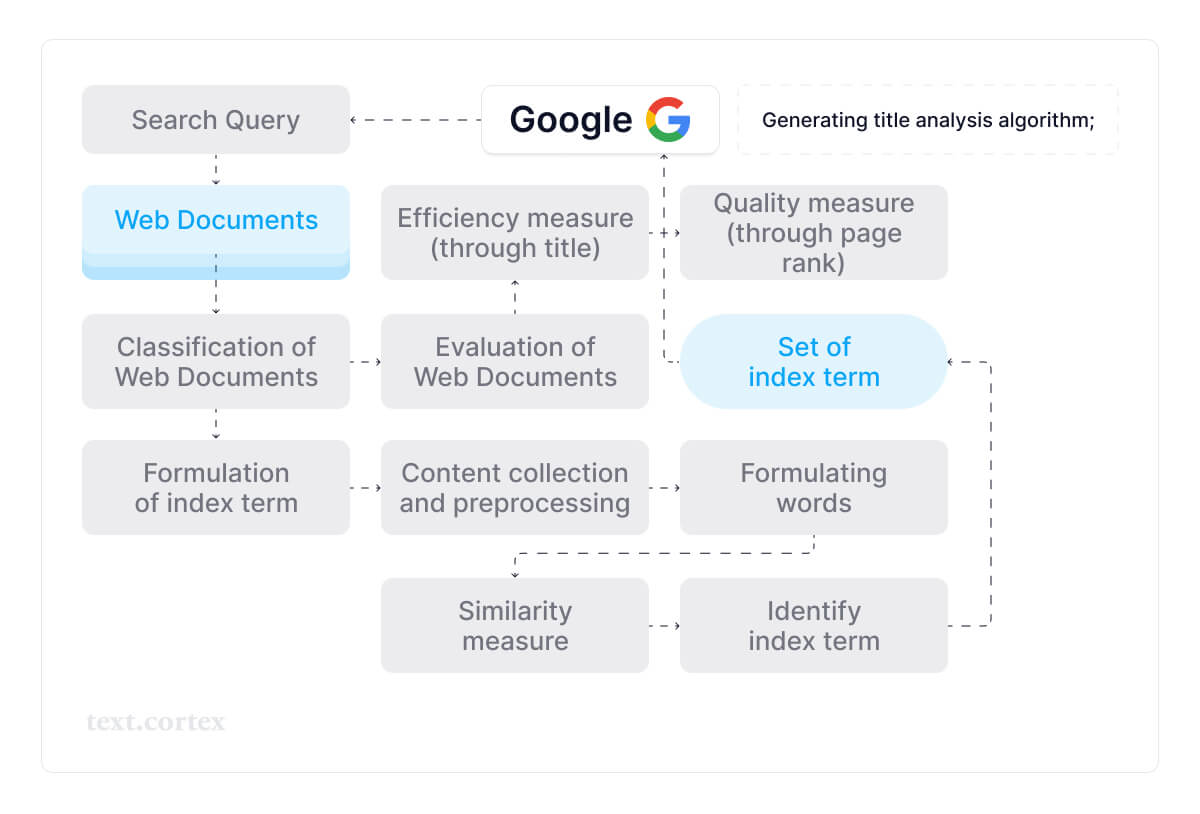
Since the updates of these algorithms are inevitable and influence your SERPs big time, it is essential to get familiar with them to stay relevant to Google search queries.
Here are some of them:
- Google Panda — It stops bad practices, including duplicate, plagiarized, or thin content, user-generated spam, and keyword stuffing that is not valuable to the user.
- Google Penguin — Penalizes spammy links.
- Hummingbird — It is responsible for making the search engine experience more human-like by promoting the most valuable and relevant content on Google's first page.
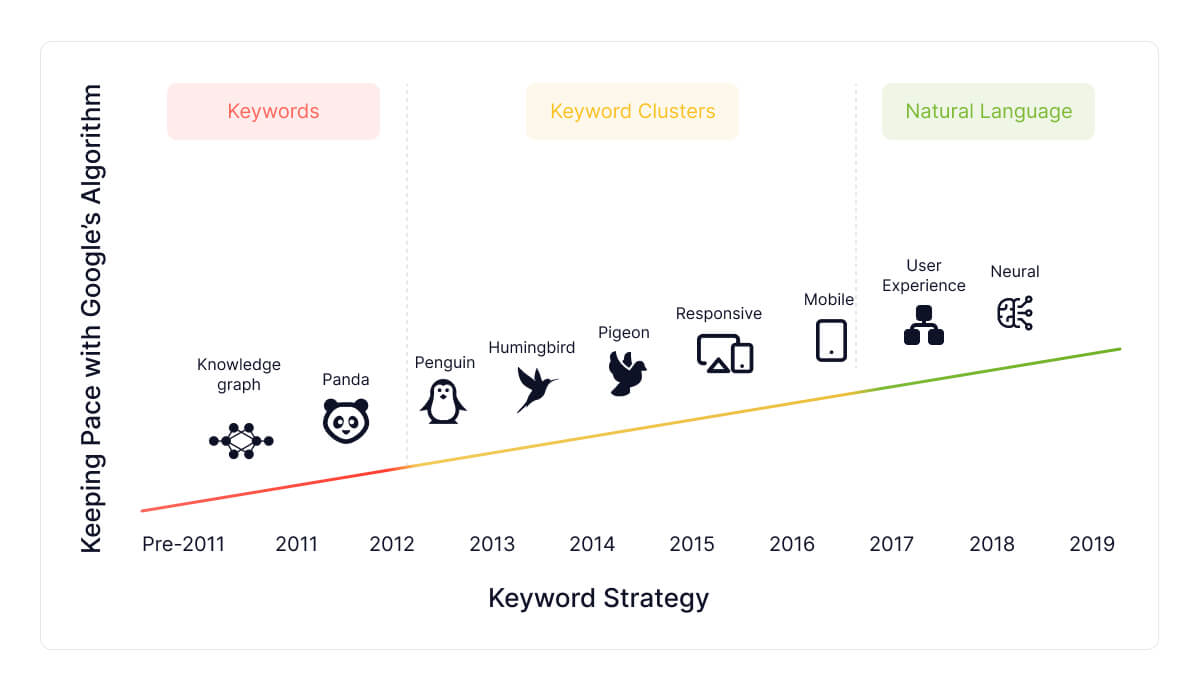
By identifying your content with any of these updates, Google will probably penalize your website.
So, where does the AI-generated content fall in here?
What Does Google Think About AI Content?
Everybody is buzzing about the famous John Muller interview (Senior Webmaster Trend Analyst at Google) in which he talks about Google treating AI content as "spam.”
And it's not surprising that many articles such as "Will Google penalize AI content?" are kicking up dust.
But let's make it clear once and for all — Mr. Muller states in that interview that AI-generated content is not according to webmaster guidelines because it is considered automatically-generated content.
Such content is a no-go since the webmaster guidelines exist.
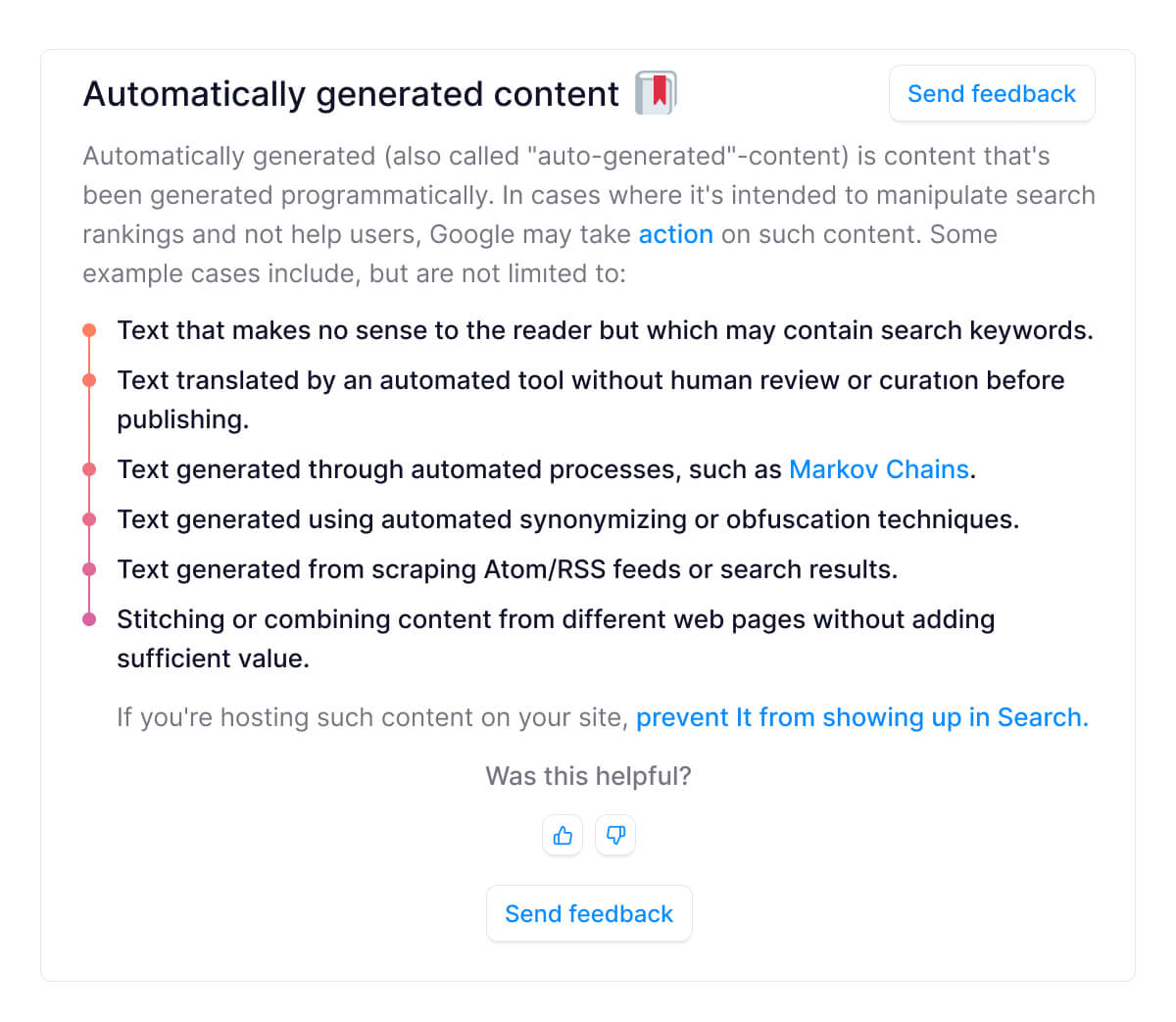
But here is where the interview gets interesting — Mr. Muller also states that he can't claim if Google algorithms are capable of recognizing AI-generated content.
That means you will get a manual penalty if your published content does not meet Google's quality criteria.
So how can Google know that content is AI-generated?
Google uses sophisticated AI technologies to determine whether or not content is valuable to users — for example, metrics such as bounce rates and time spent on a page (among many others).
The bottom line is that it doesn't matter if a robot or a human generates your content because Google can tell whether it is high-quality, low-quality, or spam.
Will Google Penalize AI Content?
Google is unlikely to provide an exact explanation with tight criteria, but it will continue to warn that AI content does not fall inside webmaster rules.
Additionally, wouldn't it be strange for Google to ban AI content in favor of improving user experience when they utilize AI themselves?
Researchers at Google Brain developed an AI model, 'Switch Transformer', that scales up to 1.6T parameters.
Comparing this to the GPT-3 model, which has 175 billion parameters, we can conclude that Google can technically discover AI content quickly if they want to.
However, this isn't to say that we shouldn't take these warnings seriously or that we shouldn't be aware of the faults in AI content creation tools.
Will Google penalize AI content that you publish on your website depends on your approach when creating content for your website:
1. How do you organize AI-generated content?
Most people make mistakes in focusing on Google algorithms and competition instead of focusing on their users and visitors.
AI tools help you create SEO-optimized content to rank in search queries properly.
Why is that important?
Because SEO should provide the most relevant result in the search queries, rather than outperforming Google’s algorithm.
Thus, we have so many articles talking about SEO strategy and how to optimize your content for better SERP rankings.
2. Which AI tools do you use?
Tools that are based on GPT-3 models use a network machine learning to generate any text from internet data.
That can be a big thing because Google just released a Broad Core Algorithm Update affecting even white-SEO websites.
In a recent post, Google's growth specialist Alekh Shah published surprising results following a recent core update that indicates a drop in organic traffic from 23 million to 65k.
Since GPT-3 module-based AI tools generate text based on around 10% of online information, using such technologies can involve a certain risk of Google penalties.
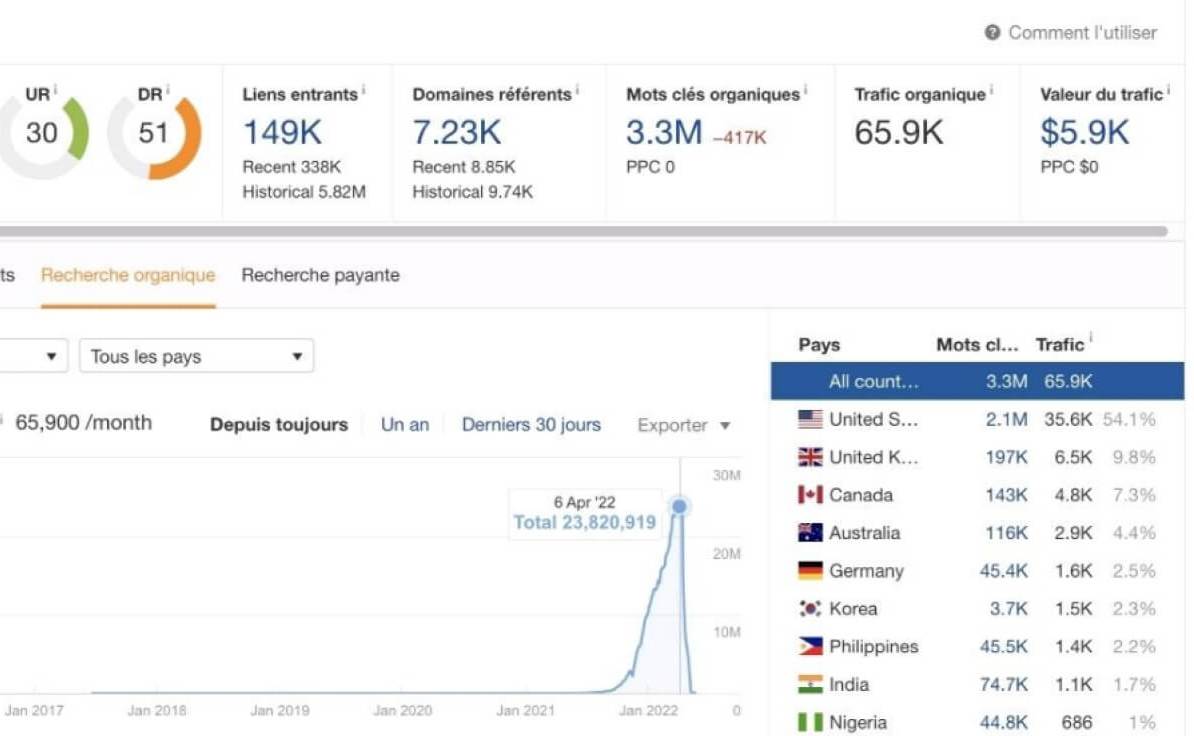
Evaluating the writing tool and learning how to utilize it in your writing practice properly is crucial to avoid such a collapse.
Use-case module-based solutions, on the other hand, such as TextCortex, create text from a best practices knowledge base comprising billions of high-quality phrases.
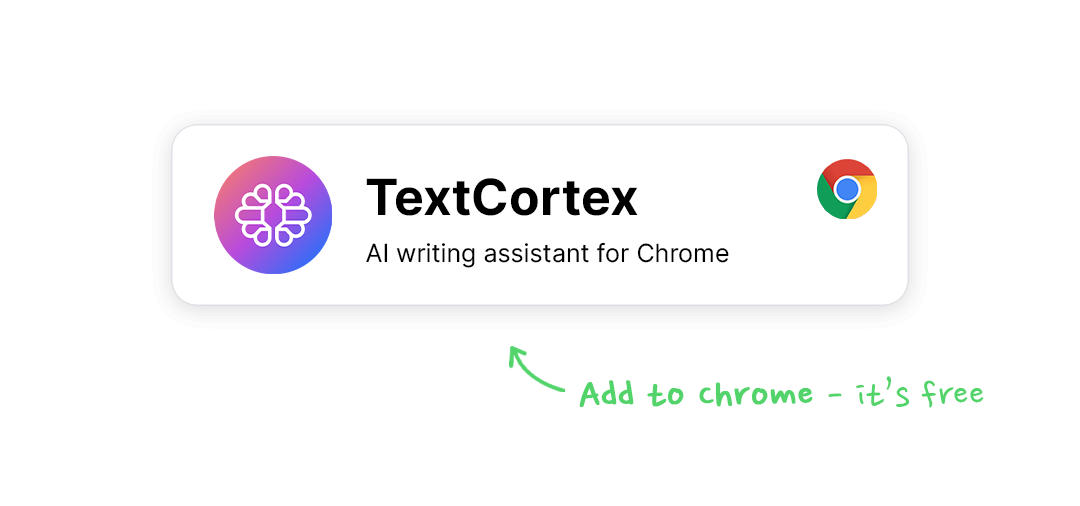
These tools are more trustworthy since they generate text material based on carefully selected sentences that perform well.
Now, let's take a look at our recommendation on how to avoid penalties.
How to Avoid Google Penalties
Google search queries are the most crucial factor determining whether and how much traffic you will get on your webpage.
When crafting your content with AI tools, remember that an algorithmic penalty is simply Google's attempt to serve the highest quality sites on the first page of search results.
Here are some steps to help you out:
1. Carefully Work On Your Domain
When choosing your domain name, it is always good to do some keyword research.
However, this is where you can easily fall into the keyword stuffing trap and get a penalty for a reckless oversight.

Keyword stuffing is not an intelligent way to build a trusted website, right?
2. Research Your Competitors
Looking at what the industry's titans are doing to attain long-term success is always a good idea.
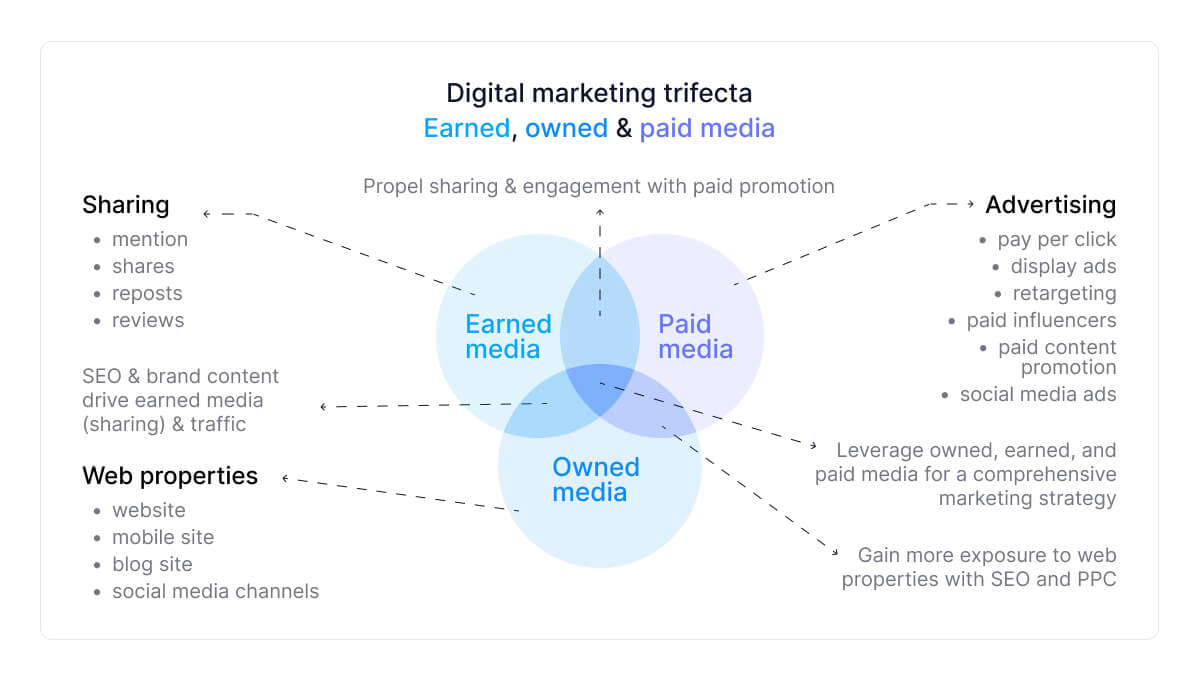
Investigating your competition will allow you to fine-tune your marketing and SEO plan for higher ranks and avoid Google penalties.
3. Smart Link Building
Link building is essential to your entire SEO strategy because it is in charge of gaining more traffic to your website.
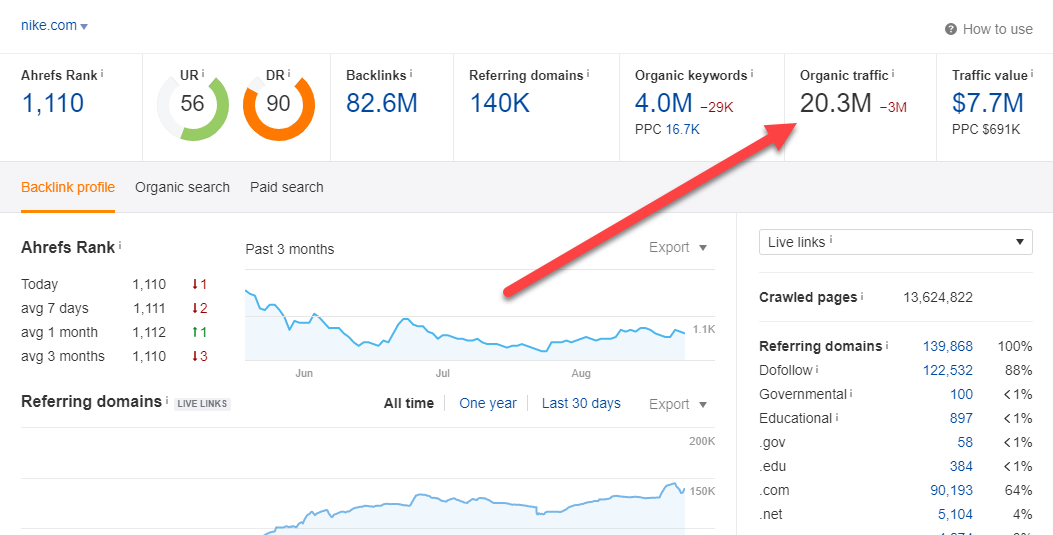
Link building, more familiar as blogging, represents a connection to your website from another reliable source.
Thus, be careful when building links not to generate low-quality connections and increase the risk of having the website backfall in ranking performance.
4. Choose The Right Anchor Text
Choose the appropriate anchor text for your linking strategy to establish the desired SERPs and craft high-quality content.
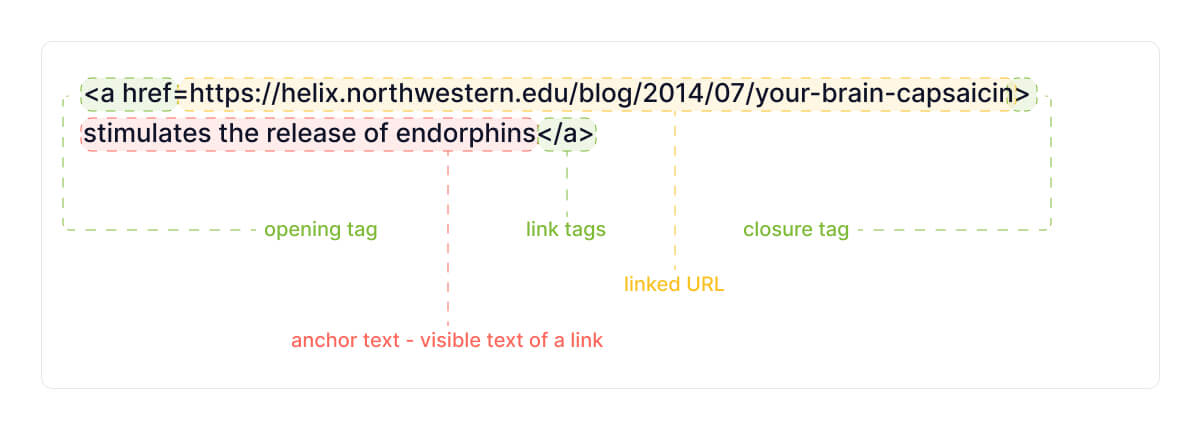
Poor quality content and a weak link profile is Google's no-go treat — in other words, this is how you tell Google that you are irrelevant.
Think about SEO optimization strategy when generating your content for the best Google ranking results.
The most important advice is to keep improving your writing since hard work pays off in the end - there are no shortcuts to success.
Final Thought
Do not hesitate to use all the assistance you can get when writing your content - it is not even a remotely easy task, and the competition is fierce to keep up with.
AI tools will help you eliminate troublesome and tiring stuff in your writing process.
Moreover, if Google utilizes AI in its workflow, why wouldn't you?
What matters is to select those that can assist you in organizing your content better, enhance your writing for better quality, and optimize your SEO strategy along the road.
With the right tools and a solid writing structure, fear of mistakes and topics such as “Will Google penalize AI content” become ancient past.
But what if we tell you there's a way to ensure you'll never have to worry about Google penalizing AI content again?
For that purpose, we created TextCortex.
TextCortex is an AI writing assistant with use-case modules that use powerful algorithms to generate high-quality text in seconds.
How do they do that?
TextCortex employs machine learning to study the context before generating desired SEO-friendly output based on a knowledge base with over 3 billion sentences of best use-cases.
It will generate content based on sophisticated and grammatically correct sentences, which AI writers use to predict the most relevant output.
In simple words, this indicates that TextCortex's output is already enriched with the natural-sounding output of 98% unique and 2% creative text.
How does it work?
You can use TextCortex as a web application and as a rewriter plugin.
With TextCortex, you can create content such as blog titles, articles, product descriptions, social media ads, cold emails, youtube and Instagram captions, etc.
Let's take a look.
Likewise, the TextCortex Chrome extension can help you to:
- Rewrite sentences for better tone and context.
- Create blog posts from a single sentence.
- Extend your text for more details.
- Shorten the original content.
- Use bullet points to create cold emails.
- Autocomplete your sentences.
The best part is that you can give it a try for free anytime and get 10 creations per day that you can enhance by evaluating the tool or referring it to a friend through Google reviews.
Download our Chrome Extension and watch how TextCortex automates 80% of your effort by creating unique, SEO-optimized content that will enhance your SERPs and eliminate penalty issues for good.

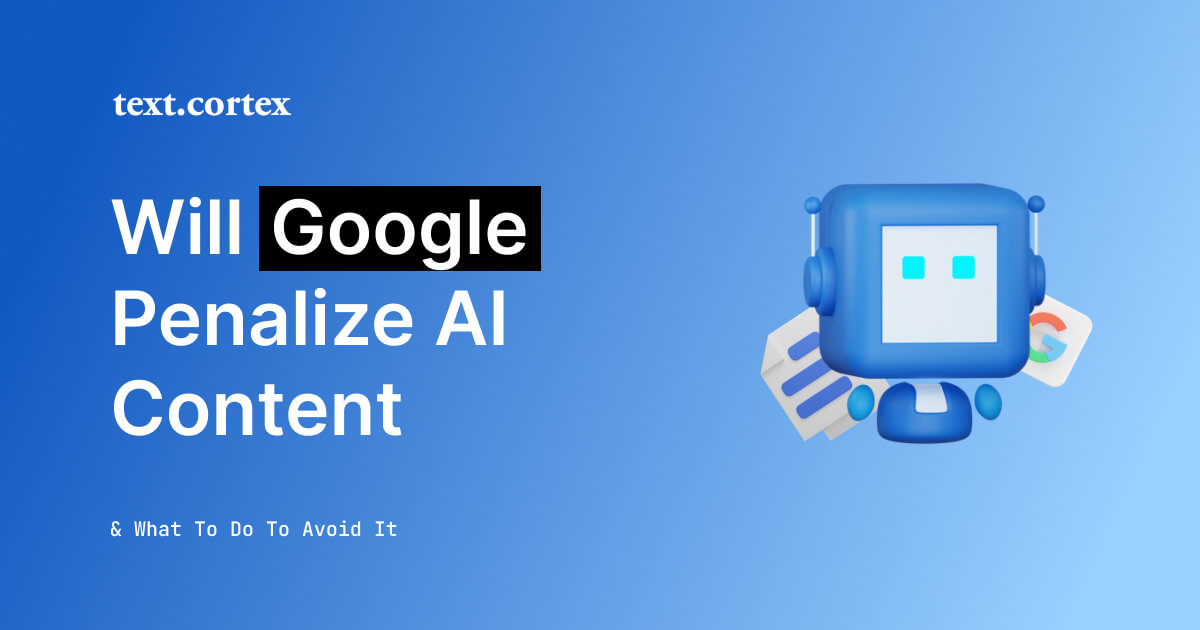
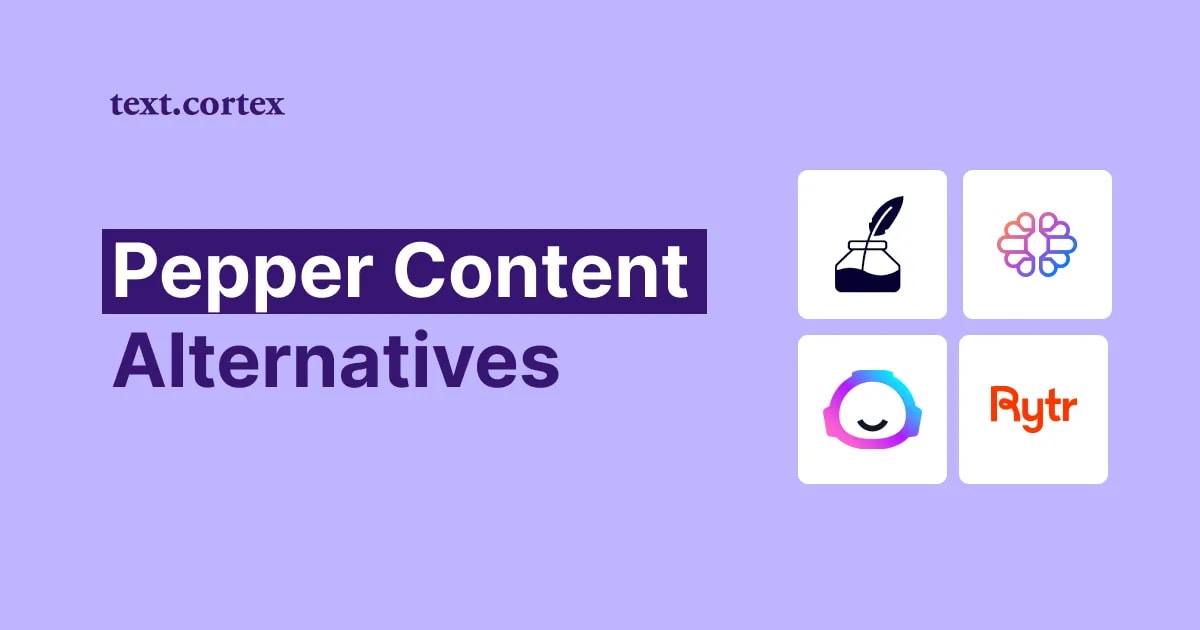
%20(51).png)

%20(50).png)